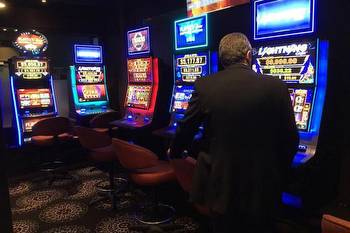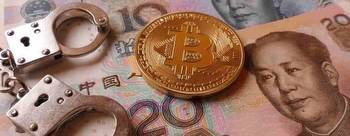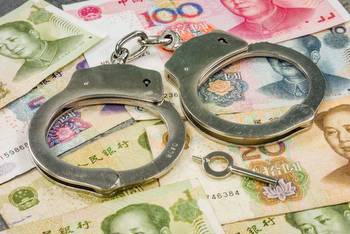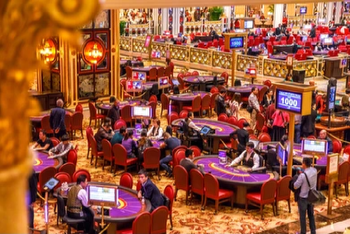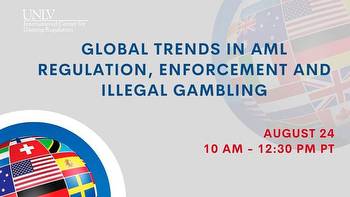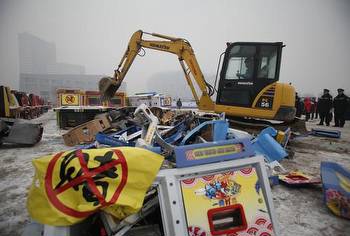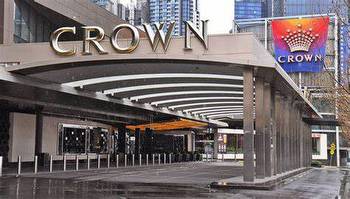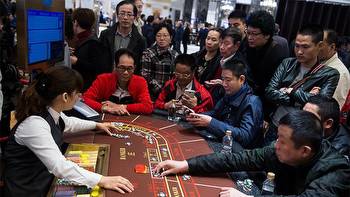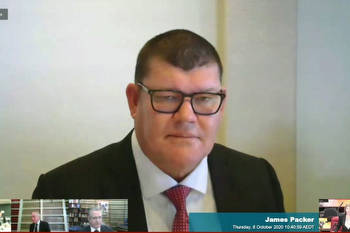Illegal online casinos spread crypto-crime across Asia

Global crime networks have set up shop in autonomous territories run by armed gangs across Southeast Asia, and are using them to host physical and online casinos that, in concert with crypto exchanges, have led to an explosion of money laundering, cyberfraud, and cybercrime across the region and beyond.
The scenario above was outlined on Monday by the United Nations Office on Drugs and Crime (UNODC) in a new report [PDF] titled “Casinos, Money Laundering, Underground Banking, and Transnational Organized Crime in East and Southeast Asia: A Hidden and Accelerating Threat.”
The report notes that casinos have long been used to launder money. That’s one reason China banned them in 1949. But the Chinese Special Administrative Region of Macau, a former Portuguese colony resumed in 1999, was until recently home to the world’s largest gambling hub – dwarfing even Las Vegas. Much of the cash flowing through Macau came from “junket operators”, entities that arranged all-expenses paid visits for high rollers. Junket operators were paid commissions by casinos and sometimes even offered credit to gamblers – or collected debts. China felt that junket operators facilitated crime and banned recruitment of citizens for trips to Macau, then prosecuted two of the most prominent junket operators.
The UN report suggests that after China’s crackdown, junket operators started working with, or operating, illegal casinos operating in what the report describes as “loosely regulated and highly vulnerable jurisdictions including Cambodia, Lao PDR, and the Philippines, as well as several border areas controlled by armed groups in Myanmar.”
Software-as-a-service providers targeting the gambling industry mean “it has never been easier to set up an online casino operation with limited technical expertise and overhead capital, irrespective of gambling laws within a given jurisdiction,” the report states. Proliferation of third-party payment providers, e-wallets, and “other payment solutions” have also meant junketeers-turned-casino-operators and money launderers had plenty of options as they started their illegal sites.
Those illegal casinos have, in turn, “have emerged as among the most popular vehicles for cryptocurrency-based money launderers, particularly for those using Tether or USDT on the TRON25 blockchain.”
Tether is a stablecoin pegged to the value of fiat currencies. TRON is an attempt to create a decentralized internet, and has a native cryptocurrency.
Laundering requires a network of fake accounts and people to run them. The report cites Chinese data that found “at least five million participants in this underground industry, totaling an estimated US $157 billion in capital outflows.”
Illegal casinos may also need to launder money because many have branched out to run cyberfraud gangs – the sort that enslave people to run scams.
As The Register has reported, the likes of Interpol have acted against cyberfraud gangs. The UN report suggests the gangs are therefore “diversifying their business model by expanding into the development of malicious mobile and web applications or malware, the broader blockchain gaming industry, online bank fraud schemes … cryptocurrency exchange and payment services, and offering a range of cybercrimes as a service.”
“Casinos and related high-cash-volume businesses have been vehicles for underground banking and money laundering for years, but the explosion of underregulated online gambling platforms and crypto exchanges has changed the game,” said Jeremy Douglas, UNODC regional representative for Southeast Asia and the Pacific.
“Organized crime groups have converged where they see vulnerabilities, and casinos and crypto have proven the point of least resistance,” Douglas added.
The regional rep added that tech has made the crime boom possible.
“Expansion of the illicit economy has required a technology-driven revolution in underground banking to allow for faster anonymized transactions, commingling of funds, and new business opportunities for organized crime,” he said. “The development of scalable, digitized casino- and crypto-based solutions has supercharged the criminal business environment across Southeast Asia.”
And not just Asia: the report states that some organized crime groups are running illegal online casinos in the United Arab Emirates, Africa, Eastern Europe, and the Pacific.
The report calls for Asian governments to wise up to the extent, and cunning, of the criminals running online casinos and associated laundering operations.
“It’s clear that the gap between organized crime and enforcement authorities is widening quickly,” stated Benedikt Hofmann, UNODC’s deputy regional representative.
“If the region fails to address this criminal landscape the consequences will be seen in Southeast Asia and beyond as criminals look to reinvest profits and innovate operations.” ®













